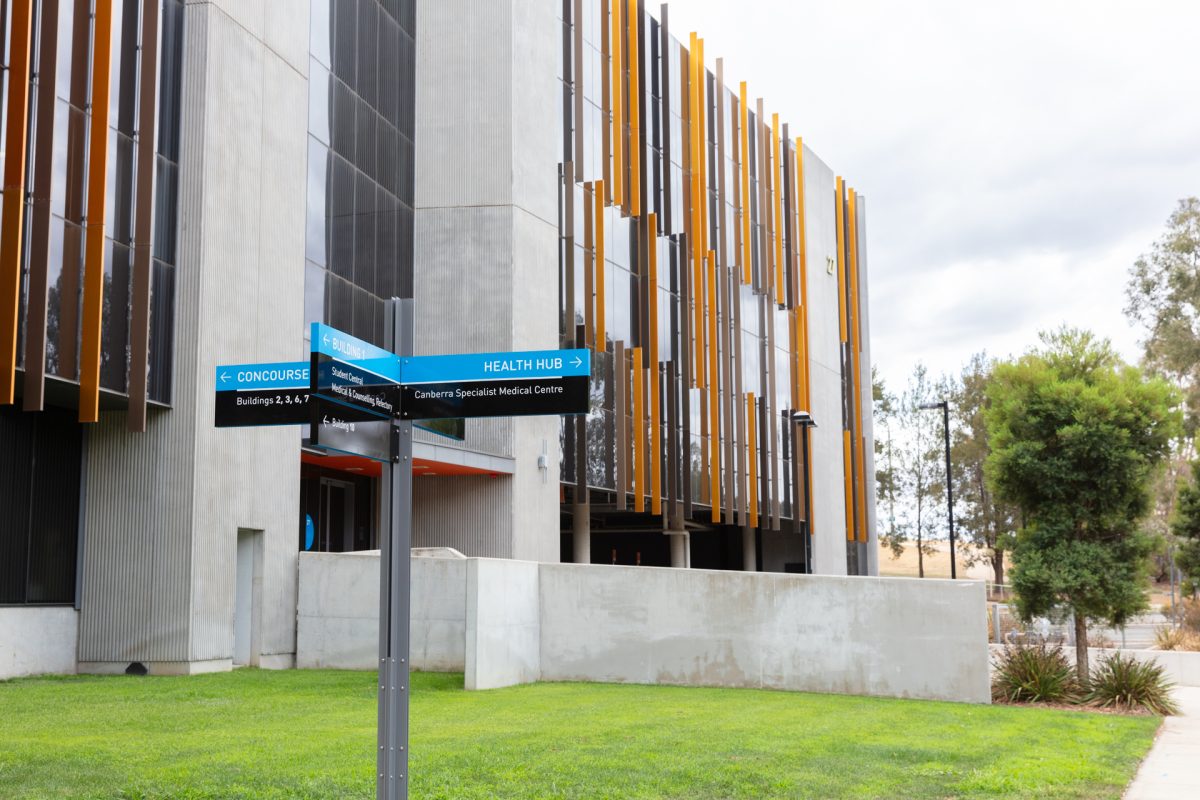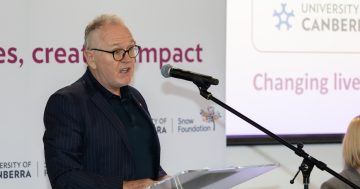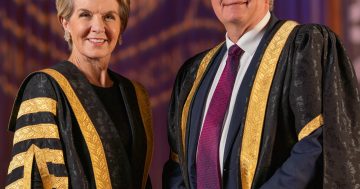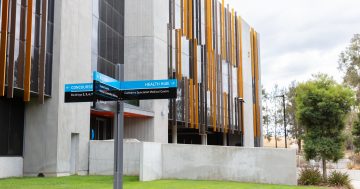
The University of Canberra is joining the ANU in overhauling its structure to reduce its recurrent spending. Photo: Michelle Kroll.
The University of Canberra plans to axe 200 jobs as part of a $50 million cost-cutting exercise designed to bring its budget back into balance by the end of 2025.
Vice-Chancellor Professor Stephen Parker outlined the overhaul at a staff “town hall” meeting on Monday morning.
The announcement prompted a call from the National Tertiary Education Union for a parliamentary inquiry into university governance.
Professor Parker said the university needed to take about $50 million out of recurrent expenditure before the end of 2025, which would affect all levels of the institution but protect students’ education and experience.
He said that while recent changes to Federal Government policies concerning international and domestic students had made an impact, the university was spending beyond its means.
“The university itself is responsible for this unsustainable position. We cannot expect any external assistance and must take urgent and significant measures to re-balance the institution. There is no point in blaming others,” he said.
At least 200 positions will go this year and in the first half of next year.
“Some will be found from positions that are or become vacant and contracts that are expiring, but redundancies seem inevitable,” Professor Parker said.
Staffing positions in the university’s five faculties and across its professional services would not be exempt, but the final position was dependent on the outcome of consultation and work that was still underway.
The university has already reduced the senior executive from five to three positions and proposes to cut a further nine senior manager positions.
Strategic programs, including the Digital Master Plan and the Education Transformation and Growth program of work, are being wound back, with some components cancelled and others deferred.
Reductions in discretionary budgets are underway across a large range of line items.

UC Vice-Chancellor Professor Stephen Parker: “The university itself is responsible for this unsustainable position.” Photo: LinkedIn.
Professor Parker said the university would be guided by a number of principles, including the need to protect safety, compliance obligations, student recruitment, student experience, educational quality, research funding and staff experience.
“It is a complex task to be performed in a short space of time and as consultatively as possible,” he said.
Professor Parker apologised unreservedly to the university community for needing to take this action, saying that it should not have been necessary.
He further committed to consulting with student bodies, unions and staff groups.
“The university has a continuing bright future as a distinctive, research-active, high-quality educational institution,” Professor Parker said.
“It is sustainable on its current student numbers, but it is not currently self-sustaining. We need to sort this out ourselves, a task to which the University Council and the executive are entirely committed.”
NTEU National President Dr Alison Barnes said the Federal Government must hold an urgent parliamentary inquiry into university governance.
“The problems we’re seeing at ANU and UC aren’t isolated to the ACT,” she said.
“National issues like shocking mismanagement leading to job losses, the corporate stacking of university governing bodies and industrial-scale wage theft require a national response.
“Unless we see urgent governance reform, our cherished public universities will continue to suffer from the mismanagement of unaccountable and overpaid vice-chancellors.”
The announcement comes after a $10 million budget blowout and the sudden departure earlier in the year of former Vice-Chancellor Professor Paddy Nixon, who received a $1.8 million pay package in 2023.
NTEU ACT Division Secretary Dr Lachlan Clohesy said UC had seen governance failure after governance failure in recent years.
“It is time that territory, state, and federal governments seriously addressed university governance,” he said.
“Losing so many staff can’t help but have an impact on teaching, research, student support, and all of the other wonderful things that UC currently does in service of our community.”
NTEU UC Branch President Dr Craig Applegate said staff were shocked and anxious about UC’s future.
“Staff feel as though this is a great university which has been let down by poor management decisions over the last couple of years,” he said.
“In a cost of living crisis, many UC staff will head into the Christmas break not knowing whether they’ll have a job to come back to in the new year.”
Professor Parker, a former V-C, was brought back to steer the university until the arrival of senior Federal Labor minister Bill Shorten, who will take up the top job at the start of the academic year.



















